English Gothic: Britain Goes to the Movies
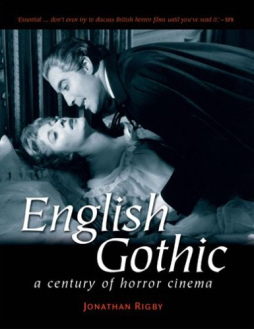 Jonathan Rigby’s ENGLISH GOTHIC (2000) is an excellent survey of British horror and science fiction films. Misleadingly subtitled A CENTURY OF HORROR CINEMA; the book focuses instead on the 20 year period from THE QUATERMASS XPERIMENT (1955) through TO THE DEVIL, A DAUGHTER (1976) when British production companies like Hammer, Amicus, and Tigon consistently outperformed the Hollywood majors in producing the finest and most influential genre films.
Jonathan Rigby’s ENGLISH GOTHIC (2000) is an excellent survey of British horror and science fiction films. Misleadingly subtitled A CENTURY OF HORROR CINEMA; the book focuses instead on the 20 year period from THE QUATERMASS XPERIMENT (1955) through TO THE DEVIL, A DAUGHTER (1976) when British production companies like Hammer, Amicus, and Tigon consistently outperformed the Hollywood majors in producing the finest and most influential genre films.
Part of the book’s strength is not just Rigby’s detailed and chronological survey of nearly every genre film to come from the British Isles during these two decades, but the fact that he captures the social and economic factors that helped shape the pictures and, more importantly, the public’s reception to them.
The rise of the horror genre in film started with the German Expressionist classics of the silent era and the contemporary Lon Chaney and John Barrymore efforts in the States. The genre solidified with the phenomenal impact of Universal’s horror franchises of the 1930s and 1940s.
The interesting thing here is that the majority of these films remained unscreened or else limited to adult-only audiences in the UK where censorship was extremely puritanical in the first half of the last century.
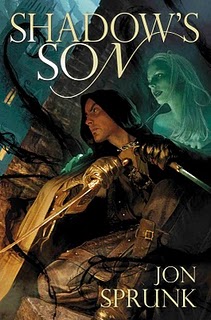 Well, I’m back from Dragon*Con, and my head is still spinning. It would take me weeks to jot down even a partial record of all the events we attended and the great people we met (not to mention the jaw-dropping costumes I was constantly gawking at) — so I think I’ll leave that to Howard, who’s already posted Part I of a splendid
Well, I’m back from Dragon*Con, and my head is still spinning. It would take me weeks to jot down even a partial record of all the events we attended and the great people we met (not to mention the jaw-dropping costumes I was constantly gawking at) — so I think I’ll leave that to Howard, who’s already posted Part I of a splendid 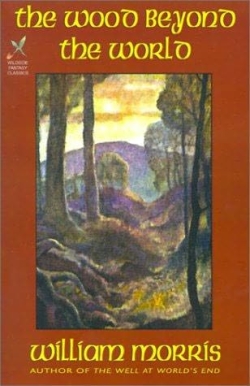 This is the second post in a series trying to answer what looks like a simple question: who wrote the first fantasy set entirely in another world? As I found in my
This is the second post in a series trying to answer what looks like a simple question: who wrote the first fantasy set entirely in another world? As I found in my 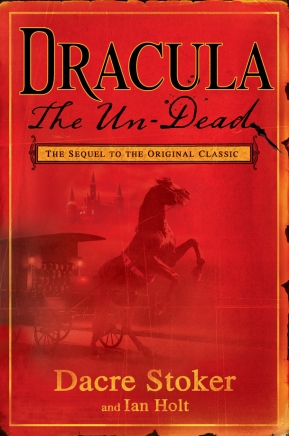
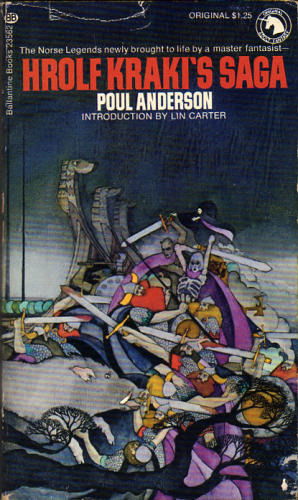 Let us die in the doing of deeds for his sake;
Let us die in the doing of deeds for his sake;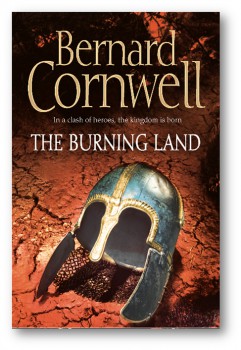 3. The Saxon Stories, Bernard Cornwell. Uhtred of Bebbanburg is a Saxon youth captured and raised among the Danes, who then proceeds to spend the next several books in this yet-unfinished series fighting alternately for both sides in war-torn 9th century England. The Saxon Stories features Cornwell, a brilliant historical fiction writer, at his near-best (though I still prefer his Warlord Trilogy) with Viking raids, shield walls, axes, dark ages combat, hall-burnings, and general mayhem galore. Great stuff.
3. The Saxon Stories, Bernard Cornwell. Uhtred of Bebbanburg is a Saxon youth captured and raised among the Danes, who then proceeds to spend the next several books in this yet-unfinished series fighting alternately for both sides in war-torn 9th century England. The Saxon Stories features Cornwell, a brilliant historical fiction writer, at his near-best (though I still prefer his Warlord Trilogy) with Viking raids, shield walls, axes, dark ages combat, hall-burnings, and general mayhem galore. Great stuff.
 Steve is a very normal man, perhaps even a bit boring. He works at an English shipping company, handling inventories and looking forward to a career in politics once he climbs the business ladder as far as it will take him. One day, for no particular reason, a sudden fit of discontent sends him down to the docks looking for something different, perhaps a restaurant he hasn’t visited. In an alley, he sees a man being attacked . . .
Steve is a very normal man, perhaps even a bit boring. He works at an English shipping company, handling inventories and looking forward to a career in politics once he climbs the business ladder as far as it will take him. One day, for no particular reason, a sudden fit of discontent sends him down to the docks looking for something different, perhaps a restaurant he hasn’t visited. In an alley, he sees a man being attacked . . .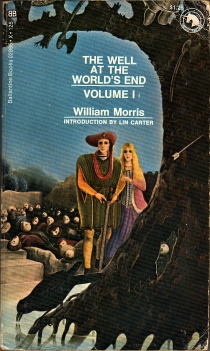 Who was the first person to write high fantasy?
Who was the first person to write high fantasy?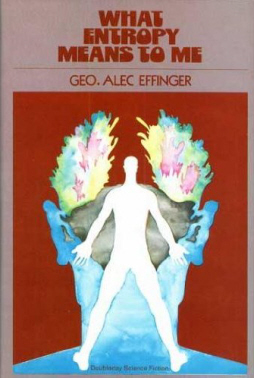 There are indeed urban legends at work in the Collector’s market. For example, the entire print order of George Alec Effinger’s first novel, What Entropy Means to Me (Doubleday, 1972) was supposedly pulped before publication (almost certainly untrue).
There are indeed urban legends at work in the Collector’s market. For example, the entire print order of George Alec Effinger’s first novel, What Entropy Means to Me (Doubleday, 1972) was supposedly pulped before publication (almost certainly untrue). There’s a temporary lull in operations and the skies are clear over Oklahoma, so I thought I’d take the time to set the record straight about our expedition to Dragon*Con via the Black Gate zeppelin, the Harold Lamb. John described the
There’s a temporary lull in operations and the skies are clear over Oklahoma, so I thought I’d take the time to set the record straight about our expedition to Dragon*Con via the Black Gate zeppelin, the Harold Lamb. John described the